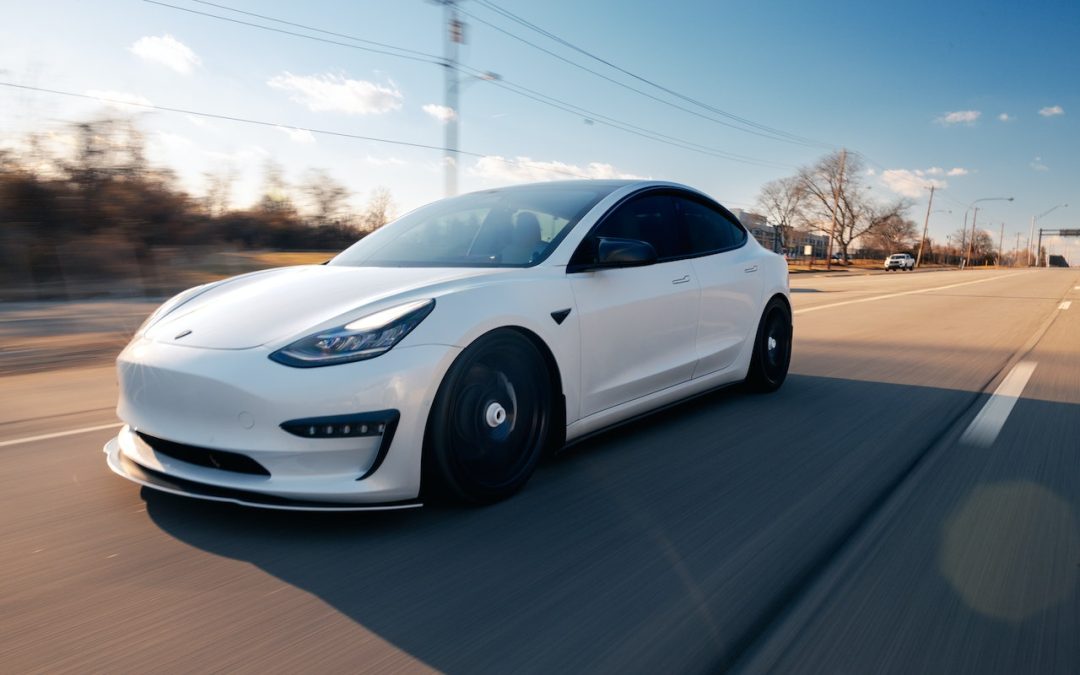
If I Buy a New Electric Vehicle, Will I Save Money?
The car industry is in the middle of a huge transformation. Many countries are banning the production of new gasoline vehicles to help with our duties for climate concerns. Just a few years ago, you may have thought of electric vehicles, better known as EVs, as novelty cars, bought only by the rich as new toys to sit alongside their array of gas guzzlers. However, now we have moved into the era of EVs becoming the norm. They are coming down in price, are more reliable, and the infrastructure supporting these vehicles is improving. The question now remains, if I buy a new electric vehicle, will I save money?
So fasten your seatbelt as we delve into the numbers, incentives, and considerations that will help you answer this question and make an informed decision about whether an EV is for you. A decision that could impact not just your wallet, but also your conscience where your responsibility to the environment is concerned.
The Upfront Cost of Electric Cars
When considering the purchase of an electric car, one of the first obstacles that often emerges is the sticker shock. Electric vehicles (EVs) typically come with a higher initial price compared to their gasoline-powered counterparts.
Understanding the factors contributing to this higher upfront cost is essential to appreciate the economics of electric cars.
Factors Contributing to Higher Initial Costs
Battery Technology: The battery is the heart of an electric vehicle, and it’s also one of the most expensive components. High-capacity, long-lasting lithium-ion batteries are crucial for the range and performance of EVs. Battery technology continues to evolve, and more advanced batteries can significantly increase the cost of the vehicle. As technology improves and economies of scale take effect, we can expect these costs to decrease over time.
According to Statista, however, the cost of lithium-ion battery packs has been impacted by soaring inflation on the price of the raw materials and battery components. Despite the increase in production costs, the market has not yet slowed, so hopefully economies of scale are still possible at a later date.
Manufacturing Costs: Electric vehicles often require specialized manufacturing processes and materials, adding to the overall production cost. However, as electric car production scales up, manufacturers can optimize their processes, leading to potential cost reductions.
Again, this is inflation-dependent, and the ability to source the raw materials used in the manufacturing process has an impact on the cost.
You can find out more about the outlook for electric vehicles in this comprehensive report by Bloomberg.
Government Incentives and Tax Credits
While the upfront cost of electric cars can be higher, many governments worldwide offer incentives and tax credits to encourage EV adoption. These incentives can significantly offset the initial price difference, making electric cars more affordable.
In the United States, the federal government offers a Federal Tax Credit of up to $7,500 for the purchase of qualifying electric vehicles.
Various states and local governments also provide additional incentives, such as rebates, tax credits, and exemptions from sales tax, registration fees, and tolls. See https://plugstar.com/tools/incentives for example from Plug In America, and information on Fringe Benefit Tax in Australia here.
Understanding these incentives is essential when evaluating the true cost of an electric car. While the upfront cost may be higher, these incentives can significantly narrow the gap between electric and conventional vehicles.
In the next section, we’ll explore how these upfront costs can be outweighed by long-term savings in fuel, maintenance, and depreciation.
Long-Term Savings
While the upfront cost of electric cars may seem off-putting, it is crucial to consider the long-term savings that can potentially offset this initial investment. Electric vehicles (EVs) offer several advantages that can result in substantial financial benefits over time.
Fuel Costs
Electric cars are renowned for their energy efficiency. Unlike gasoline-powered vehicles, EVs can be charged at home or at public charging stations. The cost of electricity is generally lower than that of gasoline, making EVs more economical to operate.
- According to the U.S. Department of Energy, the average cost of electricity for an electric vehicle in the United States is equivalent to about $1 per gallon of gasoline.
- Electric cars can be charged during off-peak hours, taking advantage of lower electricity rates, further reducing the cost of ownership.
Maintenance and Repairs
Electric vehicles have fewer moving parts compared to traditional gasoline vehicles. This means fewer components that can wear out or break, leading to lower maintenance and repair costs over the vehicle’s lifetime.
Depreciation
The depreciation rate of electric cars has been a point of concern for some buyers. However, several factors can influence the depreciation rate, including the make and model of the vehicle, advancements in electric car technology, and market conditions.
According to Motorway, some electric vehicles, such as Tesla models, have maintained relatively high resale values compared to traditional vehicles.
These long-term savings can significantly offset the higher upfront cost of electric cars, making them an attractive and financially sound choice for many consumers. In the next section, we will highlight specific electric car models known for their long-term savings.
Vehicles That Save Money in the Long Term
When it comes to choosing an electric car that offers significant long-term savings, several models stand out for their efficiency, reliability, and affordability. Below, we’ll highlight some of these models, including options that are popular in Australia:
Tesla Model 3
- The Tesla Model 3 is celebrated for its impressive range, cutting-edge technology, and strong resale value. It offers a balance between performance and affordability.
- Tesla has a growing presence in Australia, with charging infrastructure and service centers available in major cities.
Nissan Leaf
- The Nissan Leaf is one of the world’s best-selling electric cars, known for its reliability and affordability.
- It’s a popular choice among Australian electric vehicle enthusiasts, offering a competitive option in the market.
Hyundai Kona Electric
- The Hyundai Kona Electric offers a compelling combination of range and value for money. It’s known for its practicality and well-rounded performance.
- Hyundai has been expanding its electric vehicle offerings in Australia, providing more choices for buyers.
BMW i3
- The BMW i3 is a stylish and compact electric car that offers a premium driving experience. Its unique design and impressive handling make it a distinctive option.
- BMW has a presence in Australia and offers several electric and hybrid models.
MG ZS EV
- The MG ZS EV is an affordable electric SUV that has gained popularity for its competitive pricing and practicality.
- MG Motor is gradually expanding its electric car lineup in Australia.
These are just a few examples of electric car models known for their long-term savings. When considering a purchase, it’s essential to evaluate the specific features, range, charging infrastructure, and incentives available in the Australian market. As electric vehicle adoption continues to grow, more options are becoming available, offering a variety of choices for buyers looking to save money in the long term while enjoying the benefits of electric mobility.
Reasons to Buy an Electric Car in Australia
The decision to invest in an electric car in Australia comes with a range of compelling reasons beyond just financial savings. Electric vehicles (EVs) offer numerous benefits that make them a worthwhile choice for Australian drivers. Here are some key reasons to consider purchasing an electric car in Australia:
1. Environmental Impact
Electric cars in Australia produce zero tailpipe emissions, which significantly reduces air pollution and contributes to cleaner air in urban areas. This is particularly important in major cities like Sydney, Melbourne, and Brisbane where air quality can be a concern.
2. Quiet and Smooth Ride
Electric vehicles provide a quiet and smooth driving experience. The absence of engine noise and vibrations results in a serene and comfortable ride, perfect for enjoying Australia’s diverse landscapes.
3. Innovative Features
Electric cars often come equipped with advanced technology and features, including regenerative braking, app-based controls, and autonomous driving capabilities. These innovations enhance the driving experience and convenience on Australian roads.
4. Renewable Energy Potential
Australia’s vast renewable energy resources, including solar and wind power, offer the opportunity to power electric cars with clean, locally generated electricity. This contributes to reducing carbon emissions.
5. Lower Operating Costs
Electric vehicles have fewer moving parts, leading to lower maintenance and repair expenses. Reduced fuel costs, especially if charged using solar power, can result in significant long-term savings for Australian drivers.
EAVA have put together this spreadsheet to help you calculate your EV savings over time.
6. Contribution to Sustainable Transportation
Choosing an electric car aligns with Australia’s goals of sustainable transportation. EVs play a key role in reducing transportation-related emissions, alleviating traffic congestion in major cities, and promoting a more sustainable future for Australian mobility.
7. Growing Charging Infrastructure
The charging infrastructure for electric cars in Australia is rapidly expanding, as you can see in this report from the AU Electrical Vehicle Council. Governments, businesses, and organizations are investing in a network of fast-charging stations, making it increasingly convenient to charge your EV, even on long trips through the vast Australian landscape.
In conclusion, electric cars offer loads of benefits, not just cost savings. They are instrumental in reducing emissions, providing a pleasant driving experience, and contributing to a sustainable future for Australian transportation. When considering the purchase of an electric car in Australia, these reasons, along with the potential for cost savings, are likely to be key factors in your decision-making process.


Recent Comments